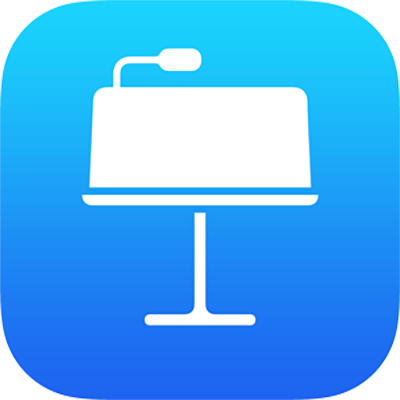
Basic touchscreen gestures in Keynote on iPhone
Gestures are essential to using Keynote on your iPhone or iPad. These are the gestures you need to know:
Tap
Using one finger, quickly and firmly touch the screen, then lift your finger. Use this gesture to select an object or activate a button.
Note: If the object is placed in-line with text, you need to double-tap to select it.
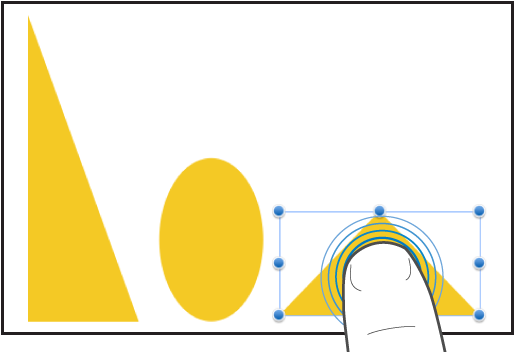
Scroll, swipe, flick
Slide one finger up and down or side to side on the screen to move the content within the screen or within a pane. This action allows you to see items that are currently beyond the edges of the screen or more options within a pane. Scroll quickly by swiping or flicking one finger rapidly across the screen.
Swipe or flick up and down to scroll.
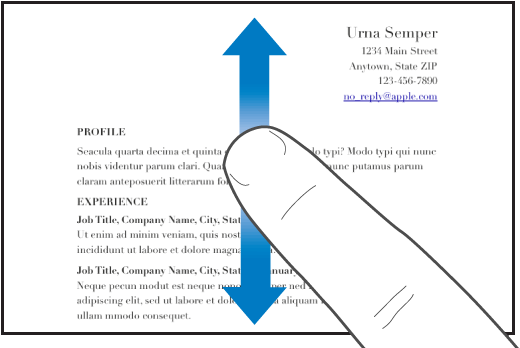
Drag
You can drag to move an object, or to resize an object or selection range.
To move an object, touch and hold your finger on the object, then drag it to where you want it. To resize an object, tap it, touch and hold one of the selection handles, then drag to resize.
Note: If the object is placed in-line with text, you need to double-tap to select it.
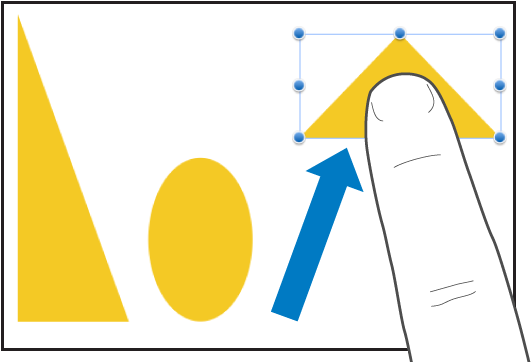
Select multiple objects
Select as many objects as you want by touching and holding one object on the screen, then tapping the other objects with another finger. Use both hands if it’s easier.
Note: If you’re working with in-line objects, you can only edit one object at a time.
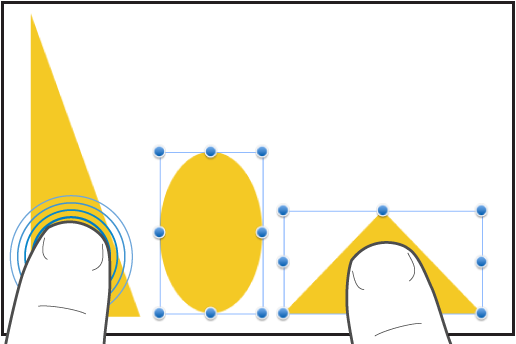
Pinch open to zoom in
Place two fingers on the screen and spread them apart. This action allows you to see a close-up of items on the screen. Pinch open quickly to immediately increase the slide size. An indicator displays the current slide magnification as you pinch.

Pinch closed to zoom out
Place two fingers on the screen and bring them together. This action allows you to see more items on the screen. Pinch closed quickly to immediately reduce the slide. An indicator displays the current slide magnification as you pinch.

Accessibility
To learn about using universal access features, including VoiceOver, see Use VoiceOver to create a Keynote presentation on iPhone and the Accessibility chapter in the device’s user guide.